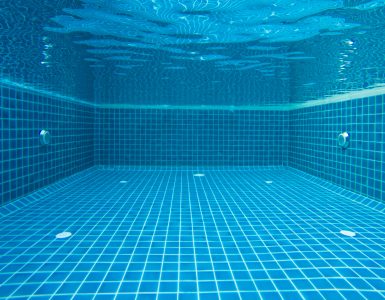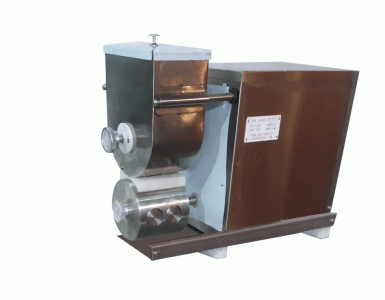In a fascinating essay in the Assia Journal (Volume 109-110, 2018)[1], Dr. Zev Frimer discusses the topic of Pikuach Nefesh issues in the emergency room on Shabbos. In particular, he addresses the question of “whether it is necessary, desirable, or forbidden to utilize non-Jewish medical scribes?”
Dr. Frimer begins with the observation that patients presenting to the emergency room on Shabbos have a status of “Safek Pikuach Nefesh” at minimum. Therefore, it is certainly permissible to conduct the initial registration and screening in the normal fashion, at least until the patient is assessed by the medical staff and his status is determined. (In addition, many of the illnesses and injuries that are common reasons for patients to present to the emergency room may not appear to be matters of life and death but are considered Pikuach Nefesh in Halacha.[2])
However, we should point out that it is certainly correct to employ non-Jews to carry out the initial registration and screening. Though there is a Machlokes between the Shulchan Aruch and the Rema (ibid. 12) as to whether one should, Lechatchila, ask a Nochri to perform Melachos in a situation of Pikuach Nefesh if this will not cause a delay, this would not apply in this case.[3] According to Rav Shlomo Zalman Auerbach zt”l, Rav Ben Tzion Abba Shaul zt”l, and Rav Ovadia Yosef zt”l, since the registration and screening of patients is not medical treatment, even the Shulchan Aruch would agree that a Nochri should be utilized if it will not delay or complicate efficient management of the emergency room.
Dr. Frimer continues by noting how important it is to discharge patients from the emergency room if they do not need to be there. This allows for timely treatment of patients who need to be there or those that will arrive later.
This is also a correct assertion. When the emergency room is overcrowded, it is necessary to discharge patients, even if that necessitates Chillul Shabbos, in order to properly treat those who require immediate care and prevent overwhelming the medical personnel. (Additionally, this helps mitigate the risk of patients contracting infections from each other.) However, if there is no overcrowding, they can be allowed to stay until Motza’ei Shabbos.
The underlying theme of Dr. Frimer’s essay is that we must relate to the public health system differently than we relate to individual cases of Pikuach Nefesh. He discusses two specific examples:
When a child comes to your house with a stomachache, you can confidently send him home based on your clinical impression that he is not in danger. Similarly, if you come across a sick child on the street, you can easily say that further investigation is unnecessary in the light of your professional judgment that he [merely] has a viral illness that will pass with time.
On the other hand, do you believe that a hospital would be of any value if it would allow its interns to maintain a scenario in which every patient with a stomachache or fever that appears to be a minor ailment that does not require investigation would be released without documentation in the medical record of vital signs, physical examination, clinical observations of the doctor (despite the prohibition of writing – Kesiva – on Shabbos), taking indicators of inflammation (Chovel, Netilas Neshama, Kesiva), checking ears (Havara, Noled, or Boneh), etc.? This would cause a catastrophe, certainly leading to [Sakanas Nefashos] of an individual [eventually].
In other words, a medical facility cannot operate by cutting corners without endangering its patients.
In Volume 113-114 of the Assia Journal[4], several reactions of senior Poskim to Dr. Frimer’s essay appear. Rav Avigdor Nebenzhal Shlit”a wrote that overall he agreed with Dr. Frimer’s positions (see below regarding employing Nochrim to perform Melachos). However, Rav Yitzchak Zilberstein Shlit”a wrote that he did not believe it was justified to permit writing without restriction to release patients from the emergency room. He maintained that there is no proof that failing to observe these protocols in medical institutions would lead to a “catastrophe and certain Pikuach Nefesh.” He dismissed several of the proofs adduced by Dr. Frimer: “These cases are not comparable to our question where there is no tangible danger to a healthy person who happens to be in the Emergency Room. We do not find that one is permitted to desecrate Shabbos for a healthy person.”
Over the years, haGaon Rav Asher Weiss Shlit”a has told me that he has a different approach than Rav Zilberstein. In his view, it is extremely important to follow hospital protocols that were established with the sole consideration of ensuring effective and quality treatment and preventing risk to patients. Any deviation from the protocol causes a danger to the entire hospital system. This is particularly true in an emergency room. Without great care and adherence to protocol, there will be a real risk to patients’ lives sooner or later.
Regarding employing Nochrim to act as scribes in the Emergency Room, Dr. Frimer raises two considerations. First, the use of scribes may complicate the work and consume precious time, thereby endangering other patients who must wait to be treated.
We must point out that while it would certainly be inefficient – and possibly dangerous – for a Jewish doctor to wait for a Nochri to be available to write or perform other Melachos for him, this would not be a reason not to hire non-Jewish medical professionals to work in the emergency room on Shabbos. Moreover, the use of scribes can improve efficiency and free up physicians for medical care when utilized properly.
Dr. Frimer’s second consideration is that many Acharonim (including the Taz, Mishna Berura, and Aruch haShulchan) dispute the Rema’s ruling that one should enlist a Nochri in cases of Pikuach Nefesh. In other words, according to these authorities, it is better for a Jew to perform the Melachos.
The Taz (ibid. 5) and Aruch haShulchan (ibid. 7) do indeed dispute the Rema’s ruling. However, I am unsure whether the bases for the Taz’s position (which is, in turn, based on several Rishonim) are applicable in our case. The respective concerns that enlisting Nochrim will cause people to think that Shabbos is not set aside for Pikuach Nefesh or that Nochrim will dally more than Jews would do not apply because they are employed in the hospital full-time and are relied upon throughout the week for medical treatment.
As for the Mishna Berura, he does indeed cite the Taz, who argues with the Rema. However, he likely holds that the Halacha follows the Rema. In Se’if Katan 35, he qualifies the Rema’s words, arguing that when the Rema says that a Nochri should be enlisted “if this will not cause a delay,” that does not mean to rule out a delay that would not endanger the patient. This implies that he holds like the Rema, l’Halacha. He also implies such at the beginning of Siman 330, where he refers the reader to his comments in Siman 328.
In addition, since we are not discussing actual medical treatment – just the screening and registration of patients – many Poskim rule that a Nochri should be enlisted, as mentioned above.
Rav Nebenzhal replied to Dr. Frimer’s essay: “In general, I agree with all that was said. However, regarding the use of Nochrim – the opinion of Rav Shlomo Zalman Auerbach zt”l was that they should be used where possible.” He also noted that (in Israel) the extensive use of Nochrim can pose a security risk.
[1] https://www.medethics.org.il/pdf-browser/?id=19407
[2] See Shulchan Aruch O.C. 328. This point was not made by Dr. Frimer in his essay.
[3] Additionally, some hold that even the Shulchan Aruch agrees that if there will be no delay at all, one should enlist a Nachri.















Add comment